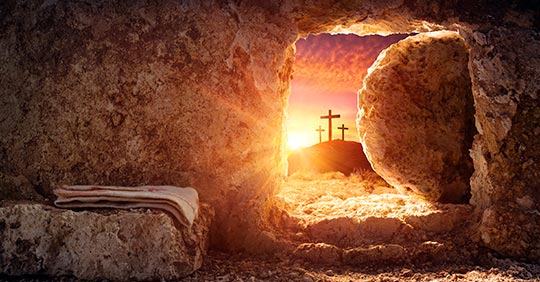Bible Question:
How we can we know for sure that the Messiah would be Yahweh incarnate? What is the evidence in the Old Testament that proves the Messiah is none other than Yahweh?
Bible Answer:
Micah 5:2 gives us a quick answer to the question, “How can we know the Messiah would be God incarnate?” Then Daniel 9:24-26 pinpoints the time the Messiah would die as a man. In addition, Malachi 3:1-3, gives us a sign that the Messiah arrived. Here are the passages and a brief explanation.

Messiah Would Be God Incarnate
Micah 5:2 prophesies the Messiah would be born in Bethlehem Ephrathah. The Jewish rabbis believed this prophecy referred to the Messiah. Here is the verse,
But as for you, Bethlehem Ephrathah,
Too little to be among the clans of Judah,
From you One will go forth for Me to be ruler in Israel.
His goings forth are from long ago,
From the days of eternity.”
Micah 5:2 (NASB)
The reason the verse says, “Bethlehem Ephrathah” is that there were two Bethlehems. One was in Galilee and the second one is about six miles south of Jerusalem. Bethlehem Ephrathah was the one that was near Jerusalem. It is important to notice the verse says that One would be born in Bethlehem Ephrathah. The last part of the verse says that He would be from “long ago.” The Hebrew word, qedem, for “long ago” means “from antiquity.” That is, He would be very old. Next, we are told He would be “From the days of eternity.” The Hebrew word for “eternity” is olam. It means “forever” or “eternal.” There is only one who is from antiquity who is eternal. He is God. That is, God would take on human flesh and blood and be born in Bethlehem Ephrathah. So, the prophecy states that God would be born in human flesh in Bethlehem Ephrathah.
Then about 500 years later, the magi came to Jerusalem and asked King Herod where the king of the Jews would be born. The king asked the chief priests and scribes where the Messiah would be born. They said He would be born in Bethlehem (see Matthew 2:1-6). That was Bethlehem Ephrathah. This is the first proof that Jesus was the Messiah and Messiah would be God incarnate. Arrival of the magi to visit Christ is an excellent study of Micah 5:2.
Sign That the Messiah Arrived
Malachi 3:1 prophesies that a messenger would go before the LORD.
“Behold, I am going to send My messenger, and he will clear the way before Me. And the Lord, whom you seek, will suddenly come to His temple; and the messenger of the covenant, in whom you delight, behold, He is coming,” says the LORD of hosts. Malachi 3:1 (NASB)
The starting point to understand the verse is to note that the Hebrew word for “LORD” of hosts at the end of verse 1 is Yahweh. That means Yahweh would send a messenger. He would clear the way before Himself. Then He would come to His temple. Now, who is the messenger? Mark 1:2-3 explains. First, verse 3 quotes Isaiah 40:3, and Matthew 3:3 reveals this was fulfilled in John the Baptist. Verse 2 quotes Malachi 3:1. John the Baptist is the messenger in both verses. That is, Yahweh will send John the Baptist before Himself, and Yahweh will visit the temple.
John 1:29-36 describes John the Baptist introduction of Christ. Then in John 2:14 Christ entered the temple. At this point the prophecy of Malachi 3:1 was fulfilled. Flavius Josephus affirms the existence of John the Baptist.[1] He also refers to Jesus Christ.[2] The gospels give us the missing connection to the prophecy which proves that Christ was God incarnate.
Time the Messiah Would Die
Daniel 9:24-26 prophesies the date of the Messiah’s death. It is usually called the prophecy of Daniel’s 70 weeks. The prophecy began on 1 Nisan 444 B.C. and ended on Thursday, March 24, A.D. 33, seven days before Jesus died on the cross (April 1, A.D. 33). The prophecy predicted the date after which the Messiah would be cutoff or die.
. . . there will be seven weeks and sixty-two weeks . . . Then after the sixty-two week the Messiah will be cut off and have nothing . . . Daniel 9:26-26 (NASB)
The prophecy gives an exact date. The Messiah had to die after this date and not to many days after that date. Computerized calendars and astronomy software help us pinpoint the date of His death as April 1, A.D. 33. The prophecy of Daniel’s Seventy Weeks provides important information about the fulfillment of this prophecy.
There are many other secular statements about the existence, life, death, and resurrection of Christ.
References:
1. Falvius Josephus. Antiquities of the Jews. Josephus. Kregel Publications. 1960. book 18. chapter 5, section 2., p. 382.
2. Ibid. book 18, chapter 3, section 3., p. 379
Suggested Links:
Historical Quotes About Christ
Why do most Jews not believe Christ is the promised Messiah?
Are there historical facts that reveal Christ is the Messiah?
Did ancient Jews believe the Messiah would arrive in the first century A.D.?
The Ancient Messiah